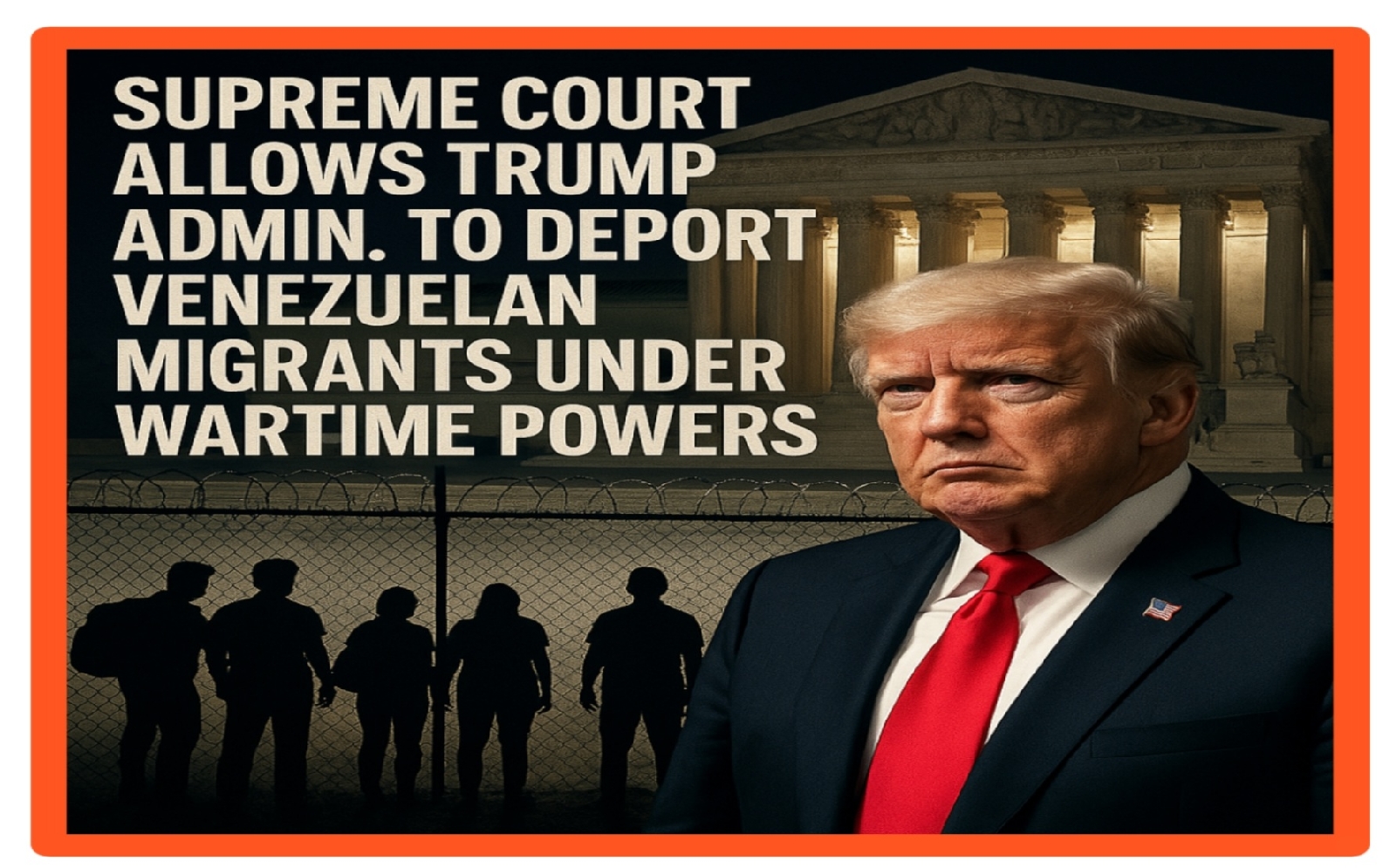Supreme Court Ruling Allows Trump Administration to Continue Deporting Venezuelan Migrants Under Wartime Powers
On Monday night, the U.S. Supreme Court issued a pivotal ruling allowing the Trump administration to proceed with the deportation of Venezuelan migrants under wartime powers. The decision overturned a lower court's temporary injunction that had paused the deportations, permitting the use of the Alien Enemies Act to expel over 100 Venezuelans to El Salvador’s Terrorist Confinement Center.
The ruling grants the Trump administration continued authority to deport Venezuelans by invoking the 1798 law, which permits the expulsion of citizens from countries considered enemies during times of war or invasion. The administration contends that the migrants are linked to the violent Tren de Aragua gang, posing a threat to U.S. national security.
Although the Court upheld the government's deportation powers, all nine justices agreed that detained migrants must be notified and given the opportunity to challenge their deportation before being removed from the U.S. In a concurring opinion, Justice Brett M. Kavanaugh emphasized that migrants have the right to contest their removal, a position echoed by others in the majority.
However, dissenting justices raised concerns about the broader implications of the Court’s ruling. Justice Sonia Sotomayor, joined by Justices Elena Kagan and Ketanji Brown Jackson, argued that the Court's legal conclusion was "suspect" and criticized the decision as an “extraordinary relief” granted without adequate consideration of the potential harm to migrants. Justice Jackson further suggested that the Court’s use of the emergency docket echoed the failed decision in the 1944 Korematsu v. United States case, which upheld internment camps for Japanese Americans during World War II.
President Trump celebrated the Supreme Court's ruling, calling it a "great day for justice" in a post on social media. He praised the decision for supporting the rule of law and national security, signaling a victory for his administration's hardline stance on immigration.
For the legal teams representing the migrants, the ruling was met with disappointment but also some cautious optimism. While they were disheartened by the Court’s decision, they noted that the ruling rejected the administration’s argument that migrants should not be entitled to meaningful notice or the ability to contest their deportation. This was seen as a partial victory in what has been a long and contentious legal battle.
The deportations began in March when the administration initiated deportation flights to El Salvador. These flights were temporarily blocked by a federal judge, but the Supreme Court’s intervention has paved the way for their resumption. As the deportations continue, advocates for the migrants warn of potential human rights violations, including reports of torture in El Salvador’s prisons. The government, however, has denied these claims, insisting that it does not support the mistreatment of detainees and that the legal challenge to the deportations should have been filed in Texas.
This legal battle represents an escalating clash between the judicial and executive branches, highlighting the ongoing tension over national security, immigration powers, and the rights of migrants. As the situation develops, the legal and human rights implications of the case remain a focal point for both advocates and critics of the Trump administration’s immigration policies.
<




Comments
Post a Comment